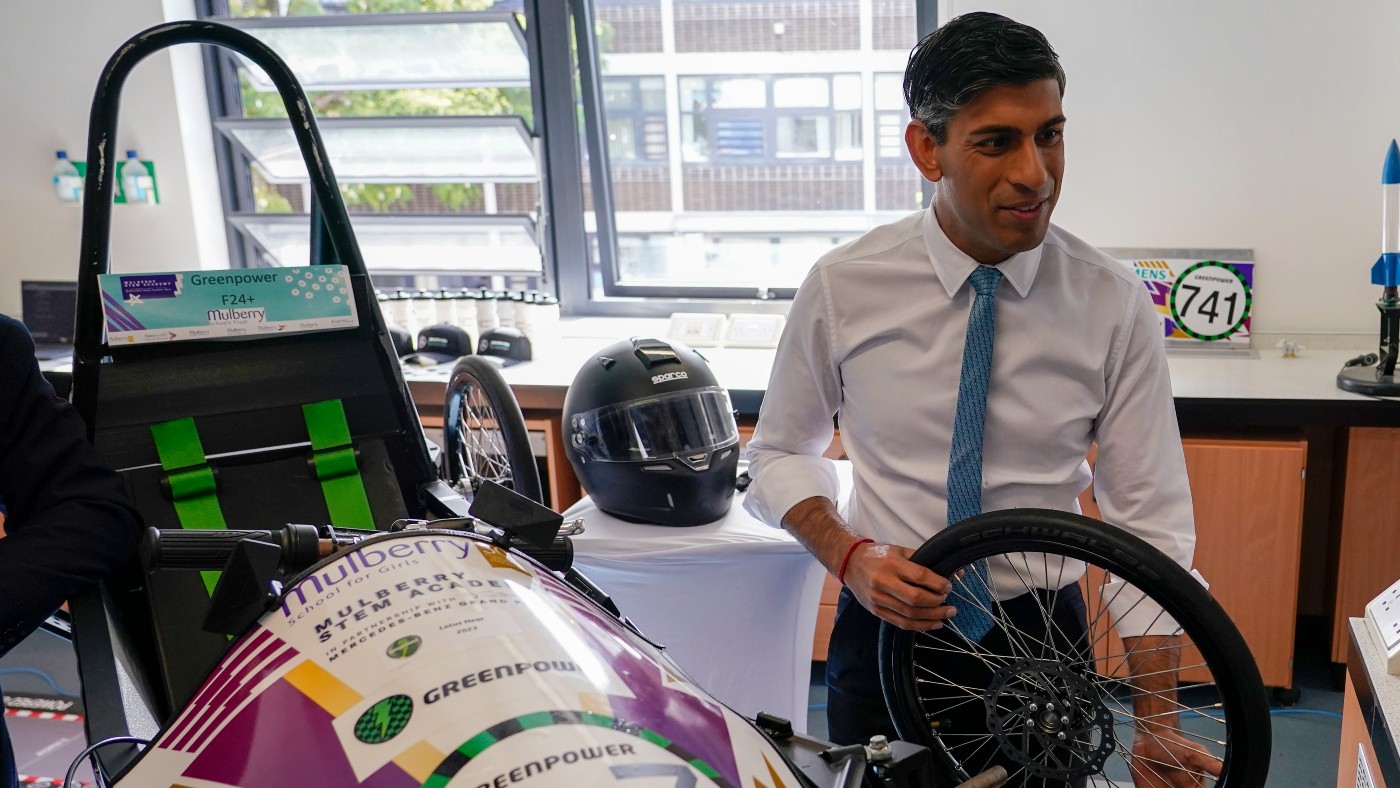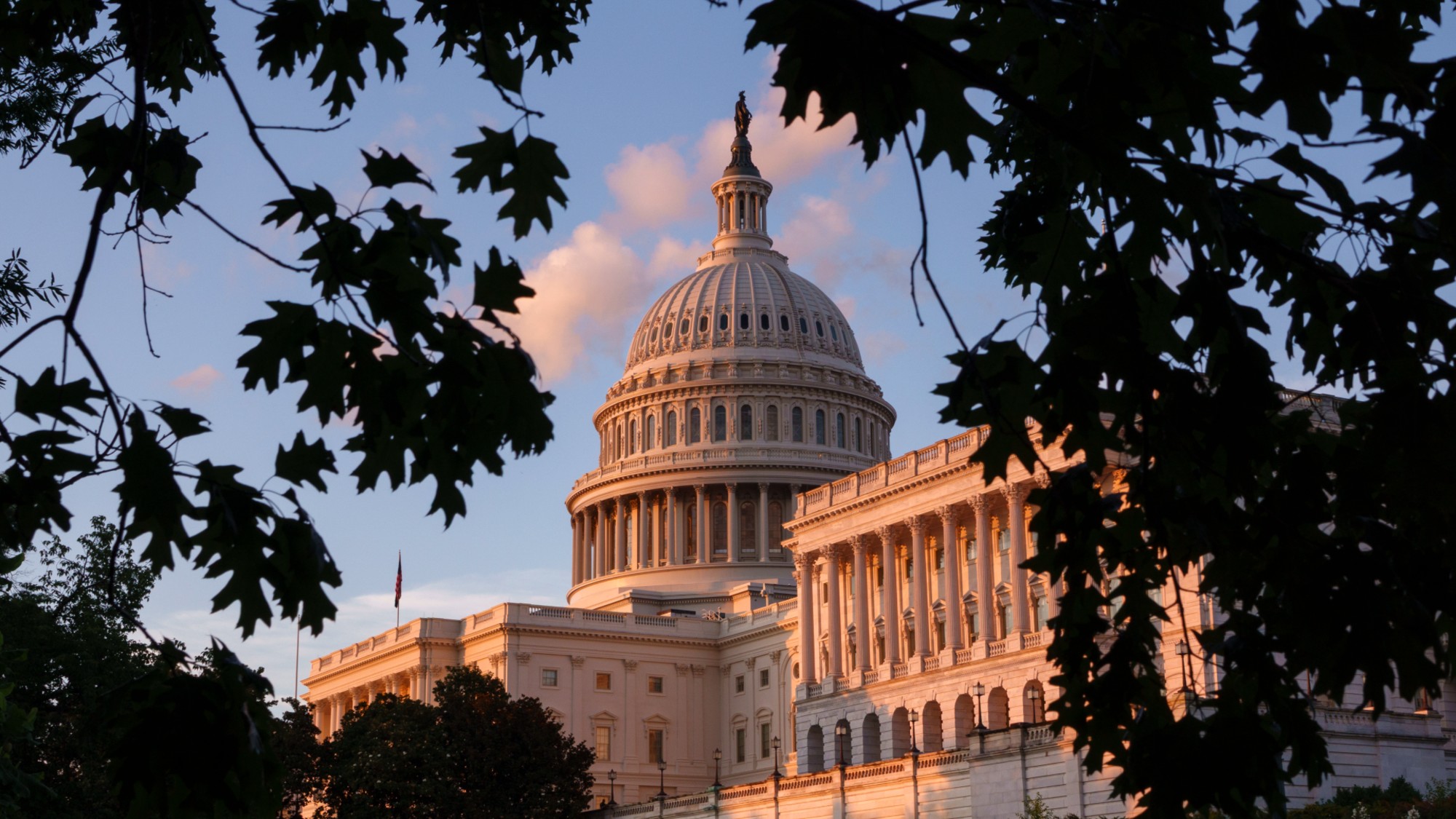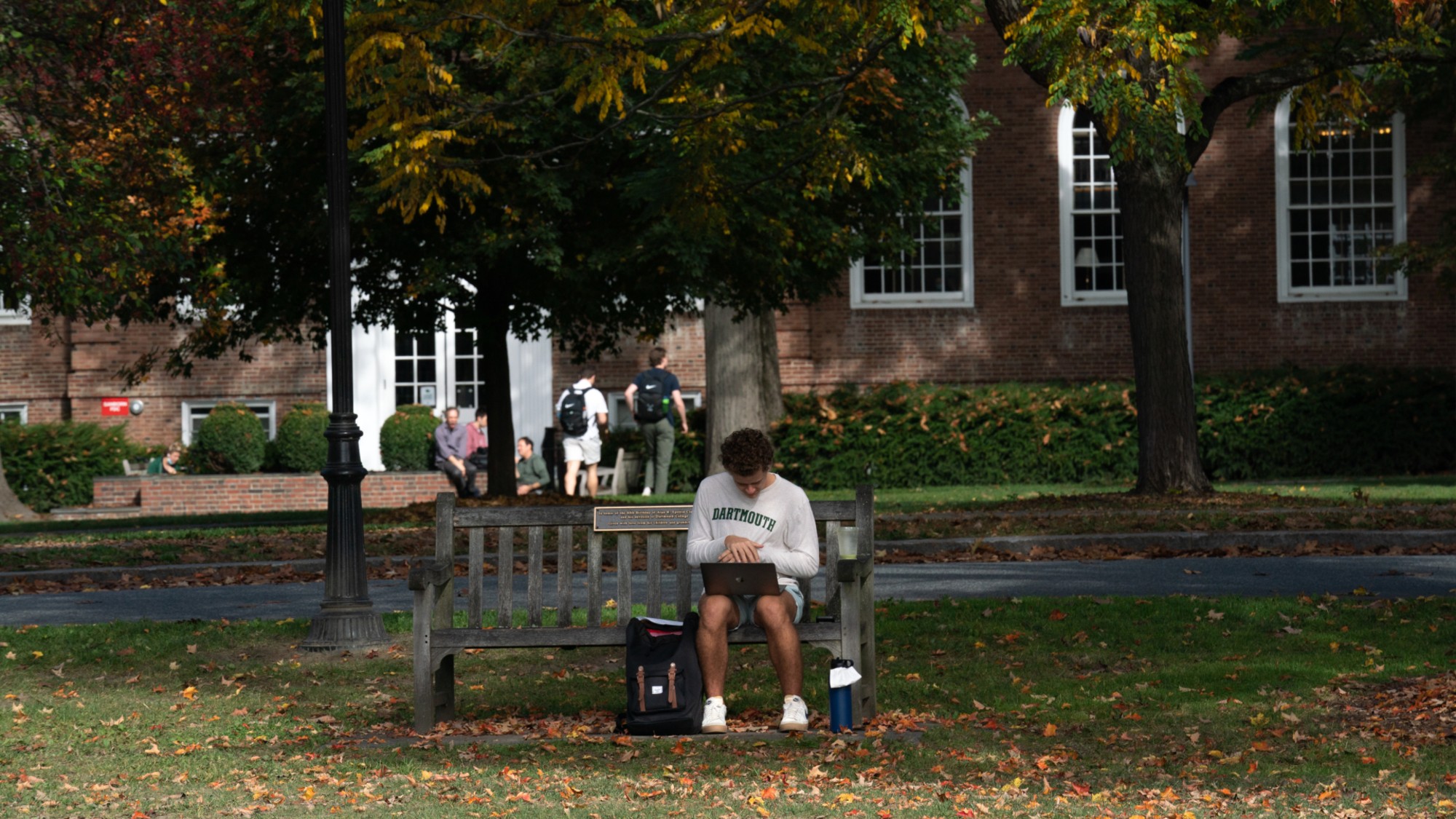Rishi Sunak’s ‘rip-off’ uni crackdown: what makes a degree low value?
New plans leave more questions than answers concerning the quality of institutions and the metrics involved

A free daily email with the biggest news stories of the day – and the best features from TheWeek.com
You are now subscribed
Your newsletter sign-up was successful
Rishi Sunak’s pledge to crack down on ‘rip-off’ university degrees has prompted a wider discussion on the value of further education in certain subjects.
Under the plans, ministers will ask England’s universities regulator to limit the number of students recruited onto courses “seen to fail to deliver good outcomes for graduates”, said the Daily Mail.
Sunak said the key message of the policy is: “you don’t have to go to university to succeed in life.” He added he was hoping to stop students “being taken advantage of with low-quality courses that don’t lead to a job that makes it worth it, leaving them financially worse off”.
The Week
Escape your echo chamber. Get the facts behind the news, plus analysis from multiple perspectives.

Sign up for The Week's Free Newsletters
From our morning news briefing to a weekly Good News Newsletter, get the best of The Week delivered directly to your inbox.
From our morning news briefing to a weekly Good News Newsletter, get the best of The Week delivered directly to your inbox.
‘Piles of debt for unremunerative degrees’
The decline in the number of students taking up English and humanities degrees has been “widely decried”, wrote Emma Duncan in The Times. But it “appears to me to be a healthy development”, she added. Universities are doing young people “no favours” in encouraging them to devote “a crucial three years of their lives and rack up piles of debt studying for unremunerative degrees”. STEM subjects and other skills that can be learnt on a degree apprenticeship are “much likelier to set our young people up for fulfilling, well-paid careers” and help them avoid “a lifetime of delivering parcels”.
“Rishi Sunak is a big fan of a ‘crackdown’”, said Kristina Murkett in The Spectator. Having previously vowed to crack down on “migration, anti-social behaviour and climate protests”, it appears that ‘rip-off’ university courses are his latest target. “But Sunak’s tough talk and aggressive rhetoric” on “low-value” degrees “smacks of overcompensating for any lack of real detail,” said Murkett. Indeed, universities already face fines from the Office of Students (OFS) if they do not meet targets for ensuring students complete courses and are in graduate jobs 15 months after university.
And one thing “no one ever really wants to admit for risk of sounding elitist” is that “the quality of the university” often matters “far more than the course”. Studying law – by Sunak’s standards, a more “employable” degree – at the University of Wolverhampton is unlikely to get you as far as studying philosophy at Durham. According to the OFS, only 35% of graduates who study Computing at the London Metropolitan University go on to secure a skilled professional role or undertake higher qualifications. Yet Computing is rarely accused of being a “Mickey Mouse” degree, argued Murkett.
‘A move to stop poorer and working-class students’
The Conservative philosopher Michael Oakeshott – who described higher education as interval during which undergraduates should have “learned something to help [them] lead a more significant life” – is likely to have given “short shrift” to the “dispiriting assumptions” that underlie Sunak’s proposed crackdowns on apparently “low-value” degrees, said The Guardian. This is a status which appears to be “defined principally by reference to earnings after graduation”.
A free daily email with the biggest news stories of the day – and the best features from TheWeek.com
That is a “dismally narrow and instrumental view of higher education” which “casually disregards the myriad benefits that a degree course can offer a young person, beyond a job at the end of it”, said the paper. “From an enhanced capacity to think critically, to the widening of social horizons and the pleasures of independent study”, a place at university offers “far more than a mere route to the workplace”.
Of course, the move “won’t affect Oxbridge and the Russell Group universities that much”, who are likely to continue offering humanities degrees such as Politics, Philosophy and Economics – a degree a great many of our prime ministers and senior politicians have undertaken, noted Suzanne Moore in The Telegraph. “Of course not. The first rule of the PPE club is to know which side your bread is buttered,” she continued. Instead, it seems like a move designed “simply to stop poorer and working-class students entering into the system”.
In any case, “most of us don’t get jobs related to what we study”. Sunak’s proposals amount to an “essentially philistine” mode of thinking that is “completely binary and small-minded. We do not know what skills will be needed in the next few years. What we do know will be needed is flexibility,” Moore concludes.
Sorcha Bradley is a writer at The Week and a regular on “The Week Unwrapped” podcast. She worked at The Week magazine for a year and a half before taking up her current role with the digital team, where she mostly covers UK current affairs and politics. Before joining The Week, Sorcha worked at slow-news start-up Tortoise Media. She has also written for Sky News, The Sunday Times, the London Evening Standard and Grazia magazine, among other publications. She has a master’s in newspaper journalism from City, University of London, where she specialised in political journalism.
-
 What to know before filing your own taxes for the first time
What to know before filing your own taxes for the first timethe explainer Tackle this financial milestone with confidence
-
 The biggest box office flops of the 21st century
The biggest box office flops of the 21st centuryin depth Unnecessary remakes and turgid, expensive CGI-fests highlight this list of these most notorious box-office losers
-
 The 10 most infamous abductions in modern history
The 10 most infamous abductions in modern historyin depth The taking of Savannah Guthrie’s mother, Nancy, is the latest in a long string of high-profile kidnappings
-
 Trump demands $1B from Harvard, deepening feud
Trump demands $1B from Harvard, deepening feudSpeed Read Trump has continually gone after the university during his second term
-
 ‘The science is clear’
‘The science is clear’Instant Opinion Opinion, comment and editorials of the day
-
 ‘The economics of WhatsApp have been mysterious for years’
‘The economics of WhatsApp have been mysterious for years’Instant Opinion Opinion, comment and editorials of the day
-
 ‘It may portend something more ominous’
‘It may portend something more ominous’Instant Opinion Opinion, comment and editorials of the day
-
 Summers out at Harvard, OpenAI amid Epstein furor
Summers out at Harvard, OpenAI amid Epstein furorSpeed Read Summers was part of a group being investigated by Harvard for Epstein ties
-
 ‘The trickle of shutdowns could soon become a flood’
‘The trickle of shutdowns could soon become a flood’Instant Opinion Opinion, comment and editorials of the day
-
 ‘Americans want dark money out of politics. We don’t have to wait for Supreme Court.’
‘Americans want dark money out of politics. We don’t have to wait for Supreme Court.’Instant Opinion Opinion, comment and editorials of the day
-
 'America's universities desperately need a reset'
'America's universities desperately need a reset'Instant Opinion Opinion, comment and editorials of the day